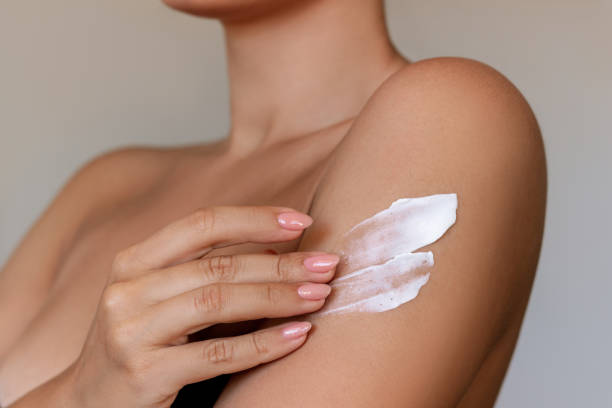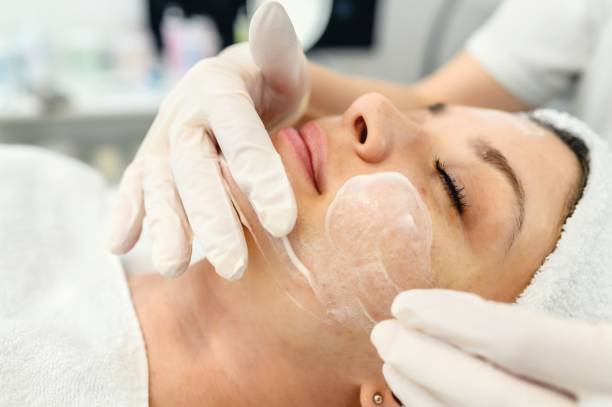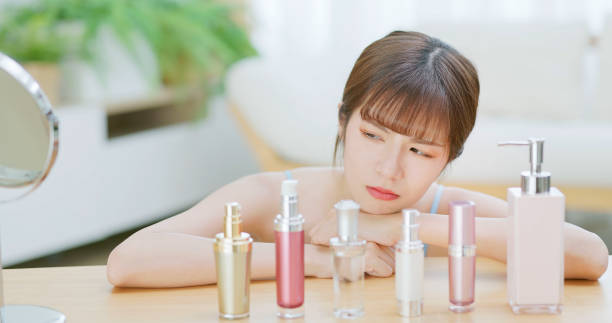1. Introduction
Cleansing is a staple of the daily skin care routine. Every day, , it is important to cleanse your skin with a good soap to remove dust, dirt, and make-up from the surface of the skin. Cleansing cleans pores and prevents acne and blackheads.
To do this, choose a mild cleanser that suits your skin type, whether it’s oily, dry, or combination. Water-based cleansers are better because they hydrate the skin and control excess oil. After cleansing, Hamisha washes her face with cold water to tighten pores and freshen the skin.
2. Moisturizing: For every skin type

Using a moisturizer is also a step that is often overlooked. Moisturizer hydrates and nourishes the skin, leaving it soft and supple. Those with oily skin should use oil-free or gel-based moisturizers that don’t leave the skin greasy. For those with dry skin, many cream-based moisturizers deeply moisturize the skin and relieve dryness. You should use your moisturizer both day and night. It is also important that the skin is slightly damp before applying the moisturizer so that the product is absorbed well.
3. Sunscreen: Skin’s best friend
Applying sunscreen is an essential step that should be part of every skincare routine. It is important to use sunscreen to protect against UV rays, which prevent premature skin aging and discoloration. Choosing a broad-spectrum sunscreen that protects against UVA and UVB rays. Applying sunscreen daily maintains the elasticity and texture of your skin. Don’t forget to apply sunscreen to the face and neck areas, and be sure to reapply every 2 hours if you spend a lot of time outdoors or swimming.
4. Exfoliation: Removal of dead skin cells

Exfoliation is a skincare component that helps remove dead skin cells and promote new cell growth. A weekly or bi-weekly exfoliation is best. There are two types of exfoliants: physical and chemical. Physical exfoliants have scrub shells that remove dead skin cells by manual rubbing.
Chemical exfoliants, such as AHAs and BHAs, gently exfoliate the skin without harsh scrubbing. After exfoliation, hydrate your skin thoroughly as exfoliation can dry out the skin.
5. Hydration: Drinking water and skin care
Hydration is important not only on the surface of the skin but also inside the body. Drink 8 glasses of water daily to stay hydrated and healthy. Drinking water improves skin elasticity and works against wrinkles and fine lines. Using moisturizing products also boosts skin hydration. Humidifiers can also be used, especially if you live in a dry environment, to provide extra moisture to the skin. Hydrated skin naturally glows and looks healthier.
6. Healthy Diet: Skin Food
Balancing your diet and eating nutritious bbananas arealso an important aspect of skincare. Fruits, vegetables, nuts, and seeds provide your skin with essential vitamins and minerals that are essential for skin health.
Foods rich in vitamin C, citrus fruit,,s and bell pep ers, boost collagen production and make the skin brighter and clearer. Omega-3 fatty acids, found in fish and flaxseeds, reduce inflammation and moisturize the skin. Avoiding junk food and sugary items is also important, as they can worsen skin problems.
7. Adequate sleep: Rest for the skin
Good sleep is also a part of skin care. Skin repairs and regenerates during sleep, improving overall skin health. It is necessary to get quality sleep of 7-8 hours every day so that the skin has a chance to recover completely. Lack of sleep can cause dark circles, puffy eyes, and dull skin. Keep your bedroom dark and quiet and limit screen time before bedtime for good and rejuvenating skin.
8. Stress Management: Skin Wellbeing
Stress also affects skin health, as it disturbs hormone levels and can trigger acne and other skin problems. Incorporate regular exercise, meditation, and relaxation techniques into your routine to manage stress. Yoga and deep breathing exercises are also effective. The reduction in tension improves the skin’s texture and tone, leaving the overall complexion brighter and clearer. A stress-free lifestyle keeps your skin youthful and glowing.
9. Customized products: For your skin type

Everyone’s skin is different, so it’s important to consider your skin type and concerns when choosing skincare products. Those with oily skin should use non-comedogenic and oil-free products, while those with dry skin need emollient and hydrating products.
Those with combination skin should choose balanced products that address the needs of different areas. It’s important to regularly evaluate your skincare routine and adjust products so your skin’s changing needs can be met.
10. Conclusion
The real secret to skin care is consistency. Follow a ddaycareroutine You won’t get immediate results, maintaining a daily routine is important for long-term results. Skincare products show their effectiveness only with regular use.
Only with patience and persistence can you see your skin’s true potential. Taking care of your skin is a long-term commitment, and by making small efforts every day, you can make your skin look healthy and glowing.
These simple and effective skincare tips can make your skin healthy and glowing by making it so much of your daily routine. With daily care and a little attention, you can keep your skin looking its best.

[…] και τον τρόπο με τον οποίο τα εφαρμόζετε. Beauty Unleashed Accomplishing Τα πραγματικά εκπληκτικά καλλυντικά ξεκινά […]